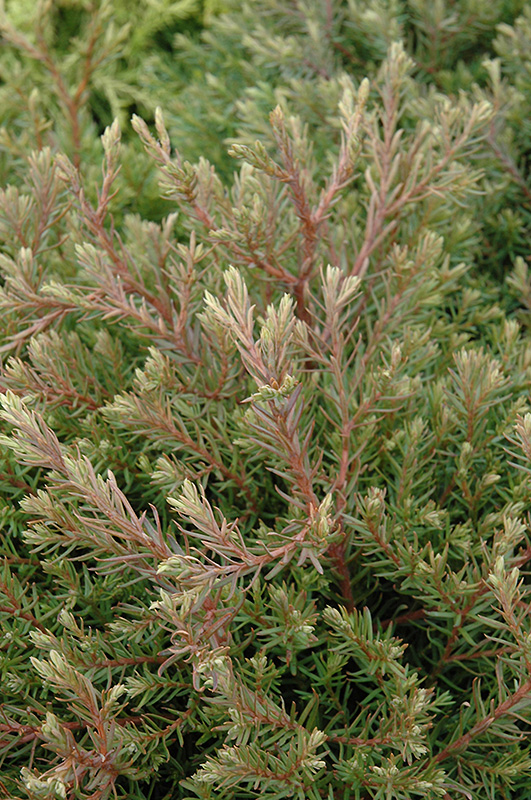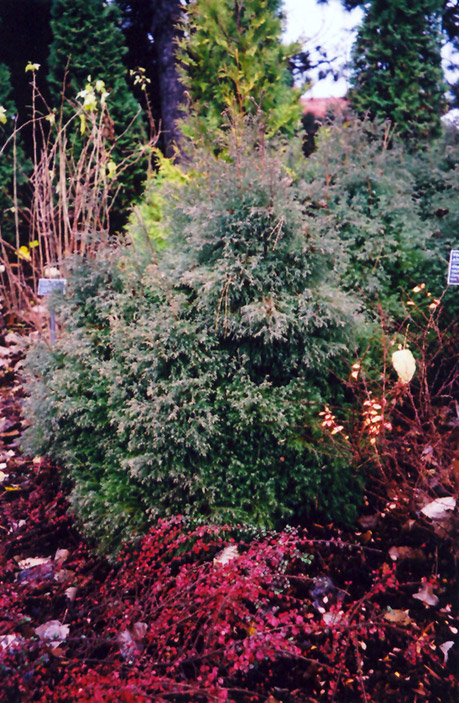Heatherbun Whitecedar*
Chamaecyparis thyoides 'Heatherbun'
* This is a "special order" plant - contact store for details
Height: 7 feet
Spread: 5 feet
Sunlight:
![]()
Hardiness Zone: 5a
Other Names: Whitecedar Falsecypress, Atlantic White Cedar
Description:
A useful garden cultivar with fuzzy bluish foliage in summer which turns to purple in fall and through winter; good for general garden applications
Ornamental Features
Heatherbun Whitecedar is a dwarf conifer which is primarily valued in the landscape or garden for its distinctively pyramidal habit of growth. It has attractive bluish-green evergreen foliage. The scale-like sprays of foliage are highly ornamental and turn coppery-bronze in the fall, which persists throughout the winter.
Landscape Attributes
Heatherbun Whitecedar is a multi-stemmed evergreen shrub with a distinctive and refined pyramidal form. It lends an extremely fine and delicate texture to the landscape composition which can make it a great accent feature on this basis alone.
This is a relatively low maintenance shrub, and should not require much pruning, except when necessary, such as to remove dieback. It has no significant negative characteristics.
Heatherbun Whitecedar is recommended for the following landscape applications;
- Accent
- Vertical Accent
- Hedges/Screening
- Rock/Alpine Gardens
- General Garden Use
- Container Planting
Planting & Growing
Heatherbun Whitecedar will grow to be about 7 feet tall at maturity, with a spread of 5 feet. It tends to fill out right to the ground and therefore doesn't necessarily require facer plants in front, and is suitable for planting under power lines. It grows at a medium rate, and under ideal conditions can be expected to live for 50 years or more.
This shrub should only be grown in full sunlight. It is quite adaptable, prefering to grow in average to wet conditions, and will even tolerate some standing water. It is particular about its soil conditions, with a strong preference for sandy, acidic soils. It is somewhat tolerant of urban pollution. Consider applying a thick mulch around the root zone in winter to protect it in exposed locations or colder microclimates. This is a selection of a native North American species.
Heatherbun Whitecedar makes a fine choice for the outdoor landscape, but it is also well-suited for use in outdoor pots and containers. With its upright habit of growth, it is best suited for use as a 'thriller' in the 'spiller-thriller-filler' container combination; plant it near the center of the pot, surrounded by smaller plants and those that spill over the edges. It is even sizeable enough that it can be grown alone in a suitable container. Note that when grown in a container, it may not perform exactly as indicated on the tag - this is to be expected. Also note that when growing plants in outdoor containers and baskets, they may require more frequent waterings than they would in the yard or garden.
* This is a "special order" plant - contact store for details


